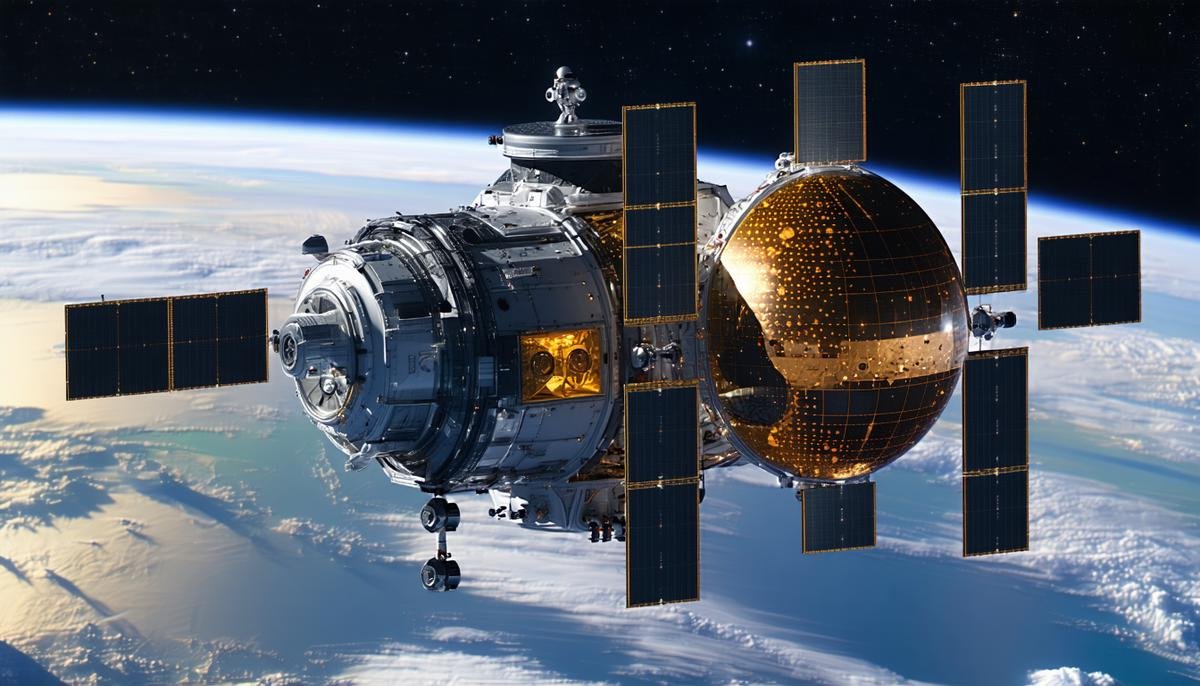Understanding AGI
Artificial General Intelligence (AGI) represents a significant advancement from current AI technologies. Unlike narrow AI, which excels in specific tasks, AGI aims to match human-level cognitive abilities across various domains. In space exploration, AGI could potentially handle complex, varied tasks without pre-programming for each scenario.
AGI's flexibility could revolutionize space missions by adapting to unfamiliar challenges and making independent decisions. Its natural language processing and advanced sensory perception capabilities could enhance human-machine interaction and environmental analysis in space.
While narrow AI currently guides probes and analyzes data, AGI could lead more autonomous space missions, potentially overcoming hurdles without constant input from Earth. This could open new avenues for scientific advancement and discovery in space exploration.

AGI's Potential in Space Exploration
AGI in space exploration could enable more autonomous and efficient missions. An AGI-equipped spacecraft could make real-time decisions, adjusting to unforeseen challenges like unexpected asteroids or interesting phenomena. This level of autonomy would allow robotic explorers to venture further into space with greater independence.
In data analysis, AGI could process and interpret vast amounts of information collected by space probes, potentially identifying patterns or anomalies indicating extraterrestrial life or decoding complex molecular structures in distant atmospheres.
AGI's real-time decision-making capabilities could overcome communication delays between Earth and distant spacecraft. This autonomy could keep missions on schedule and potentially prevent critical failures.
By bridging the gap between human ingenuity and robotic endurance, AGI could make space exploration safer, faster, and more efficient, potentially expanding our reach in the universe.

Challenges of Implementing AGI in Space
Implementing AGI in space exploration faces several challenges:
- Reliability: AGI systems must function flawlessly in harsh space conditions, including extreme temperatures and radiation exposure. Redundancy in system designs may be necessary to maintain functionality if components fail.
- Safety: Ensuring AGI's safe operation is crucial, as any malfunction could jeopardize entire missions. Thorough validation and verification procedures are needed to ensure adherence to safety protocols.
- Data constraints: AGI systems must function with limited data transmission from Earth, requiring efficient data processing and storage capabilities.
- Ethical considerations: Granting AGI autonomy raises questions about the boundaries of machine decision-making. Aligning AGI's processes with human values and ensuring transparency in its operations are essential.
Overcoming these obstacles requires collaboration across fields, combining technological advancements with ethical foresight to integrate AGI into space exploration safely and effectively.

AI vs. AGI in Current Space Missions
Current space missions employ narrow AI for specific tasks like guiding rovers and optimizing satellite operations. While effective, these systems are limited to pre-programmed algorithms and often require Earth-based input for significant decisions.
AGI could potentially overcome these limitations by autonomously prioritizing scientific targets, adapting to unforeseen events, and making real-time decisions. In satellite operations, AGI could process multi-source data to proactively avoid collisions or reconfigure itself for new mission objectives.
The data analysis capabilities of AGI would surpass current AI systems, potentially expediting the search for exoplanets or understanding of cosmic phenomena. While today's AI systems have advanced space exploration, AGI promises to bring unprecedented autonomy and efficiency to extraterrestrial missions.

Future Prospects and Ethical Considerations
AGI in space exploration could redefine our cosmic capabilities, potentially advancing research on alien worlds and uncovering universal mysteries. However, this potential comes with significant ethical considerations.
The autonomy of AGI raises concerns about decision-making far from Earth. A framework for transparency and accountability is necessary to ensure AGI's actions align with human ethical standards and mission goals.
Balancing AGI's decision-making capabilities with regulatory oversight is crucial. AGI systems should be ingrained with strong ethical guidelines, prioritizing human safety and respecting potential extraterrestrial entities.
Managing potential risks, including cybersecurity threats, is essential. Implementing advanced security measures and creating resilient architectures will be necessary to protect AGI systems.
Developing a regulatory framework that fosters innovation while safeguarding against risks is vital. This framework should promote transparency, accountability, and the sharing of best practices across international space agencies and private stakeholders.

The integration of AGI into space missions could redefine our approach to cosmic exploration, offering new levels of autonomy and efficiency. This advancement has the potential to enhance our understanding of the universe significantly.
- Kurzweil R. The Singularity Is Near: When Humans Transcend Biology. New York: Viking; 2005.
- Russell S, Norvig P. Artificial Intelligence: A Modern Approach. 4th ed. Pearson; 2020.
- Bostrom N. Superintelligence: Paths, Dangers, Strategies. Oxford University Press; 2014.




